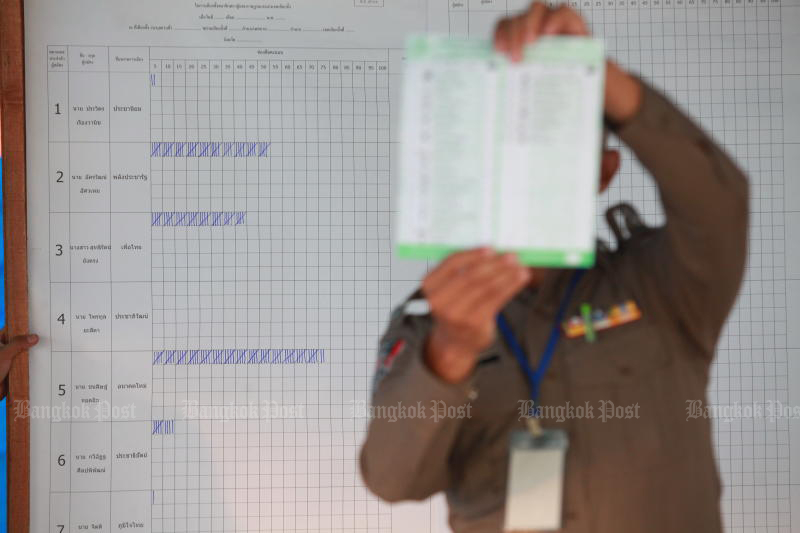
A large majority of people do not understand the method for the calculation of party-list MPs, particularly an argument over whether to divide the party-list votes by 100 or 500, according to the result of a survey by the National Institute of Development Administration, or Nida Poll.
The poll was conducted on July 11-13 by telephone interviews with 1,312 people aged 18 and over of various levels of education, occupations and incomes throughout the country after Parliament on July 6 voted to approve a proposal by New Palang Dharma Party leader Ravee Maschamadol to divide the number of party-list votes by 500, rather than 100 as originally proposed.
Under the approved formula, the 500 figure - the total number of all MPs, comprising 400 from constituencies and 100 from party-lists - will be used to divide party-list votes to determine the minimum number of listed MPs for each political party.
Asked whether they understand the calculation method, particularly over the use of 500 or 100 to divide the party-list votes, 62.35% said "no", not at all; 21.11% said "yes", but only a little; 11.74% said "yes", somewhat; and 4.80% said "yes", fully.
Of the respondents with full and moderate understanding (217), when asked to comment about the Parliament's decision to divide by 500, their replies were split - with 36.41% in total disagreement; 30.41% in moderate agreement; 16.59% in full agreement; and 16.59% in moderate disagreement.
When the 217 respondents with full and moderate understanding of the calculation method were asked why Parliament members voted to use 500, the replies varied:
- 28.11% said they wanted all party-list votes to be meaningful;
- 23.96% said parties in the present coalition government wanted to stay on after the next election;
- 20.28% said they wanted small parties to have some seats in Parliament;
- 17.97% said they did not want any particular party to win by a landslide; and
- 9.68% said did so in exchange for votes to support the prime minister and 10 other cabinet members in the upcoming no-confidence debate.
Asked to comment on the House of Representatives having two types of MPs, from constituencies and party-lists, 58.39% said they wanted to have both types of MPs; 33.38% said there should be only constituency MPs; and 8.23% said there should be only party-list MPs.







